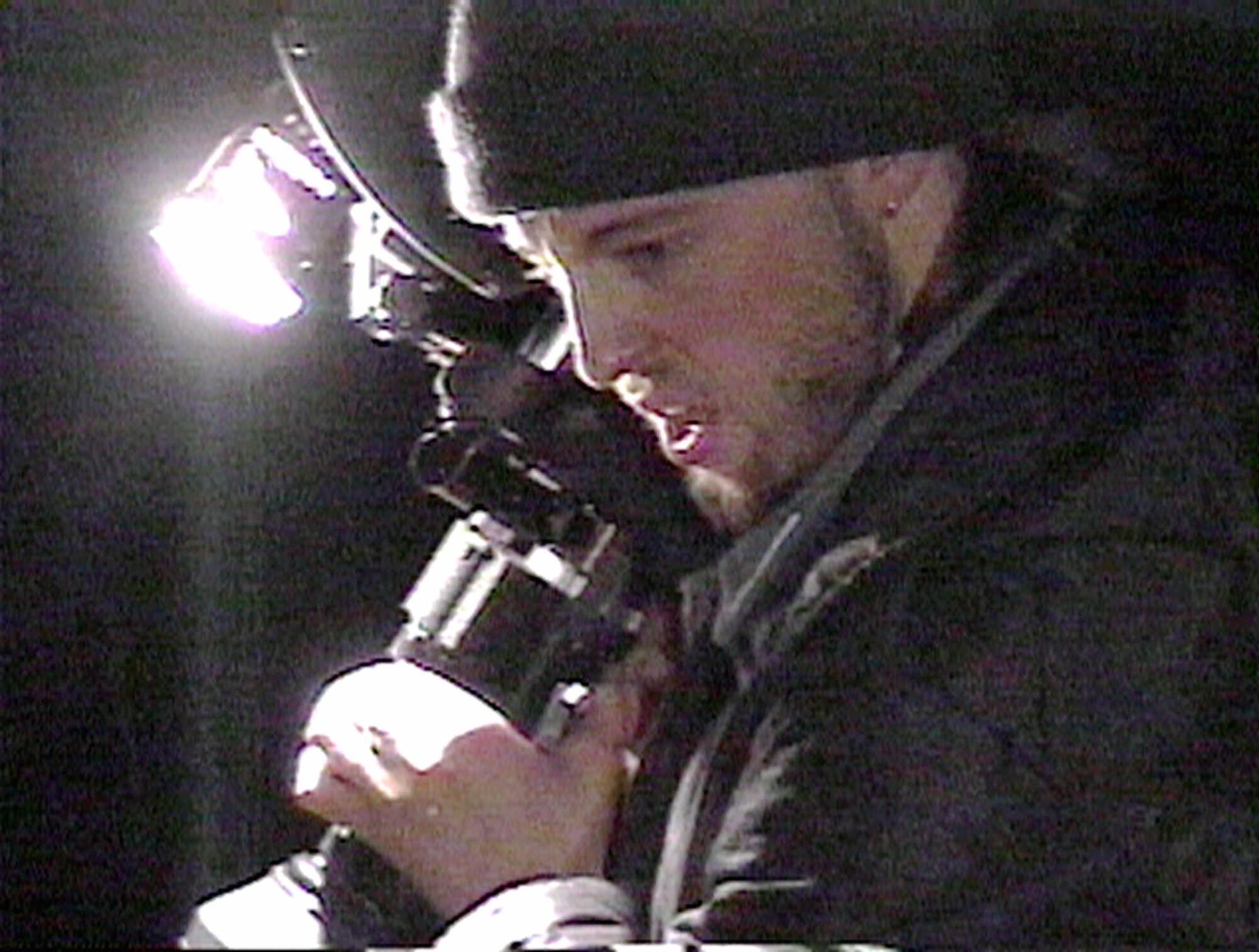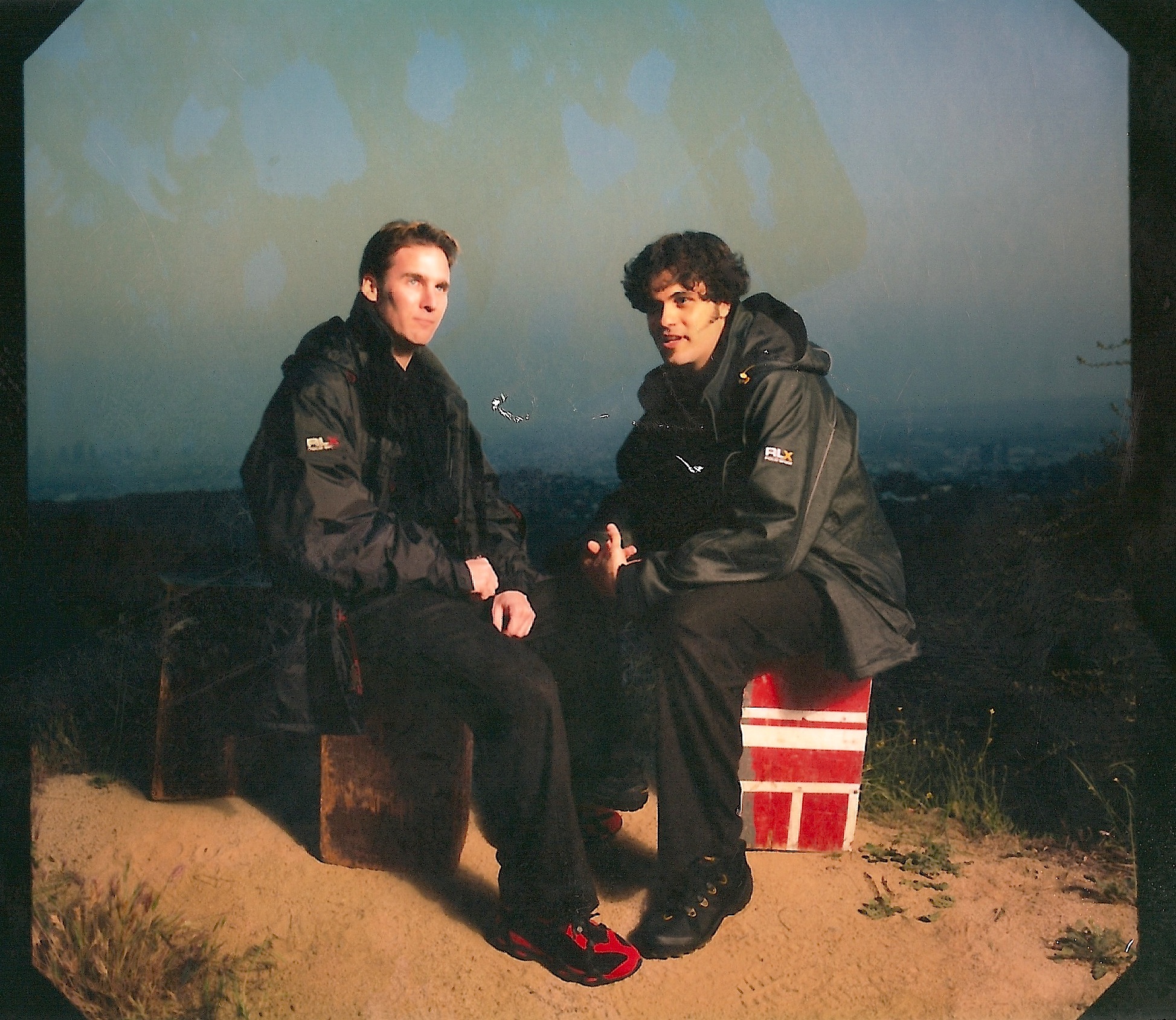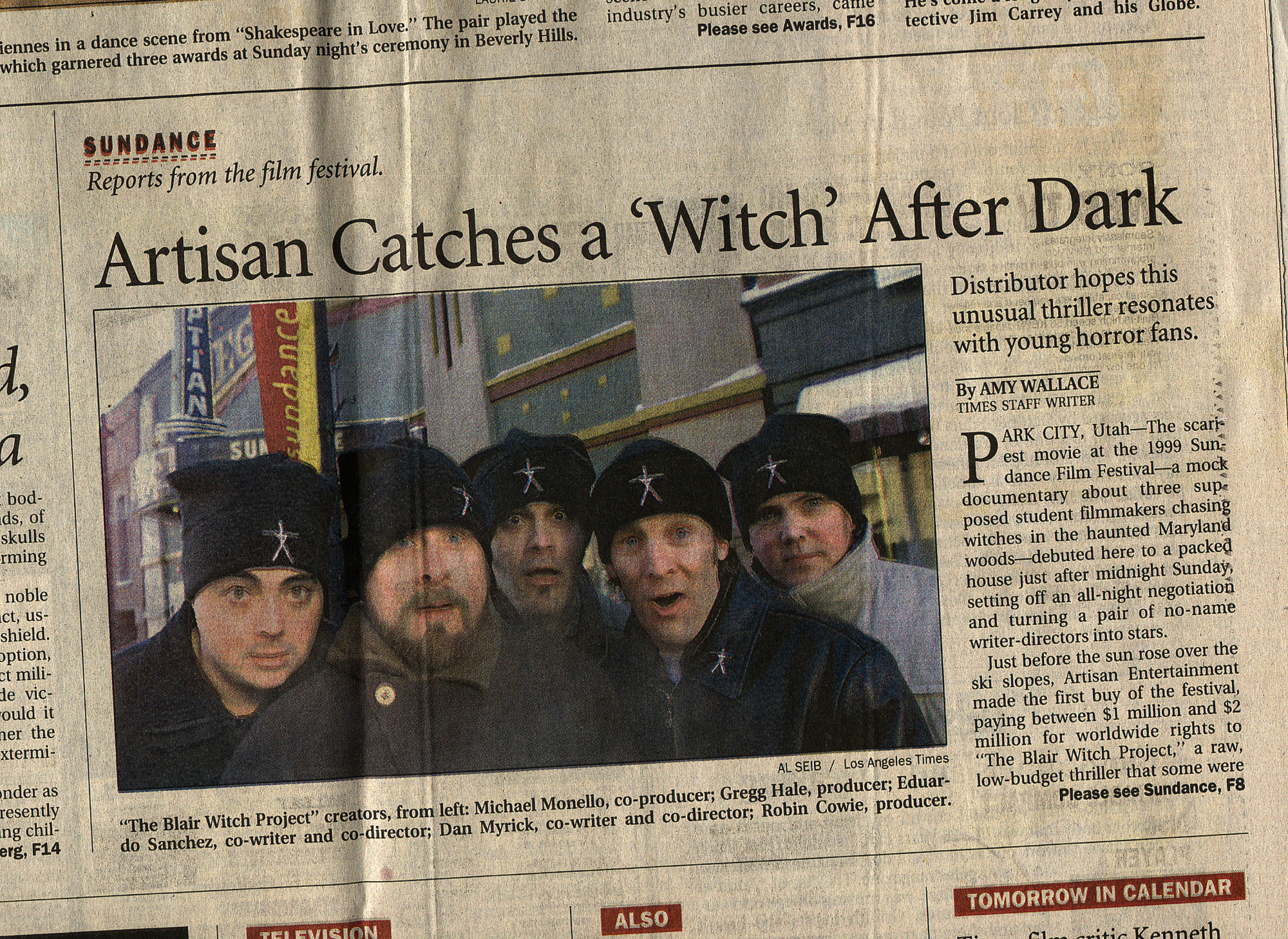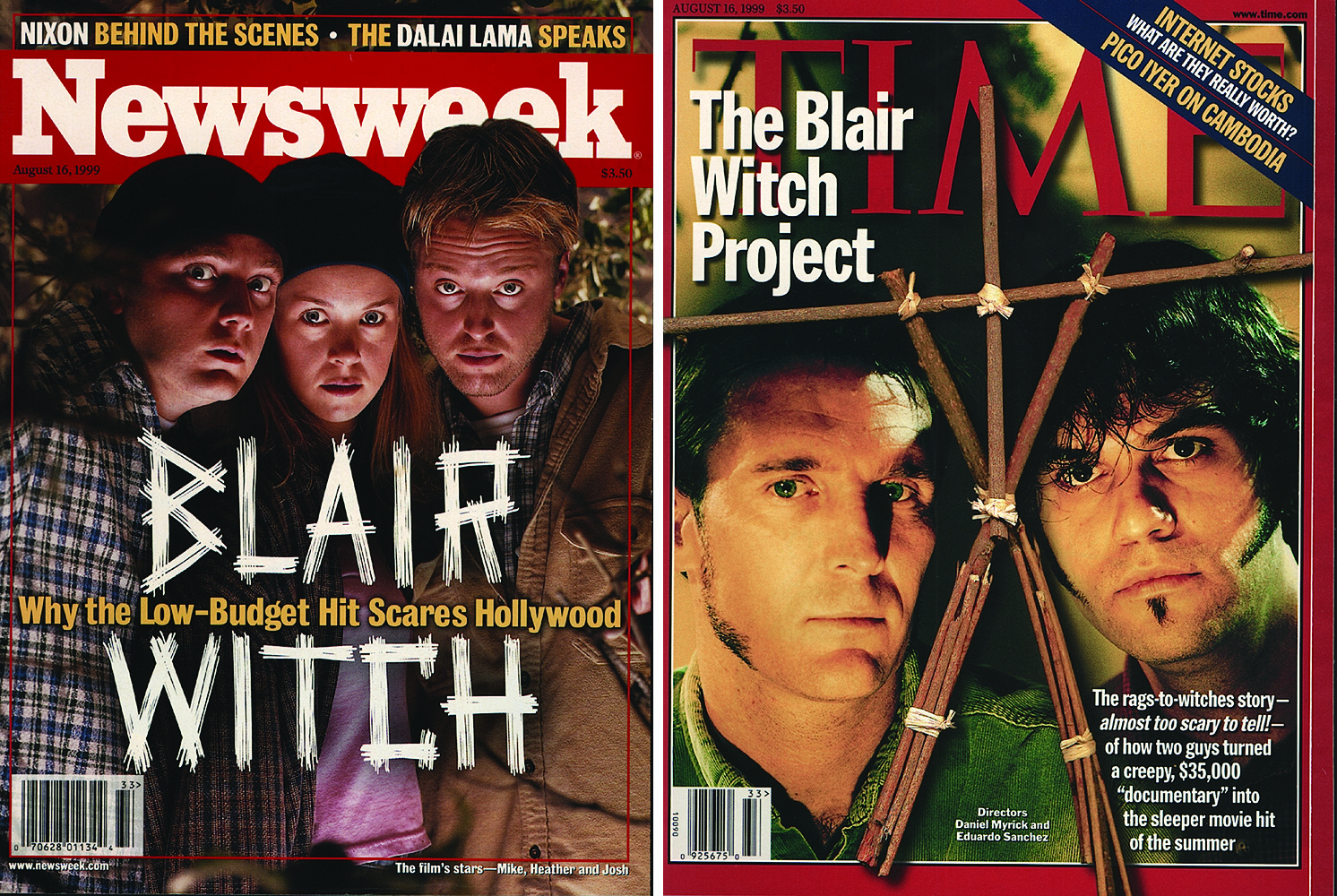The Blair Witch Project: An oral history, Part 3


A free daily email with the biggest news stories of the day – and the best features from TheWeek.com
You are now subscribed
Your newsletter sign-up was successful
In October 1997, two unknown, first-time filmmakers shot a micro-budget horror movie in the woods in Maryland. Their success was extraordinary: The Blair Witch Project became a $248 million global phenomenon. Along the way, the filmmakers revolutionized the idea of a "blockbuster," proved the value of viral marketing, and launched an entire subgenre of cinematic horror.
Nearly two decades later, how do the people responsible for The Blair Witch Project feel about the film? In the following four-part oral history, six people involved in the creation of The Blair Witch Project — writers/directors Dan Myrick and Eduardo Sanchez, producer Gregg Hale, and stars Heather Donahue, Joshua Leonard, and Michael C. Williams — describe in their own words the instrumental roles they played in bringing one of the most successful and influential horror films of all time to life.
The Week
Escape your echo chamber. Get the facts behind the news, plus analysis from multiple perspectives.

Sign up for The Week's Free Newsletters
From our morning news briefing to a weekly Good News Newsletter, get the best of The Week delivered directly to your inbox.
From our morning news briefing to a weekly Good News Newsletter, get the best of The Week delivered directly to your inbox.
Part III: Blair-mania begins
After the guerilla filming process, the actors returned to their normal lives. Dan and Eduardo spent much of the next eight months in the editing room, cutting hours and hours of footage into a coherent story.
Eduardo Sanchez (writer/director): I would edit at night. I didn't have a girlfriend at the time, and I had a lot more time on my hands. And Dan would edit during the day.
Gregg Hale (producer): The most important piece of filming the movie was the edit. That's when we really started to realize that there was something special about the footage of the kids themselves. We started to mess around with the idea of the kids, alone, being the movie. Just their footage. It actually took us quite a while to land on that and be comfortable with that idea, because it was so different than what we had originally planned on doing. The original idea was that it was going to be structured more like an old In Search Of… episode. Dan, Ed, and I were all really influenced by that TV show. We thought it would be a little bit of the footage of the kids in the woods — but framed by people analyzing it, finding things in the footage, that kind of stuff.
A free daily email with the biggest news stories of the day – and the best features from TheWeek.com
Eduardo Sanchez: We started shooting the documentary part. We hired an actress who looked a lot like Heather, who could be Heather's mom. We hired a "detective" who was supposedly hired by Heather's mom to do an investigation. We did fake newscasts. We did a fake In Search Of… type of show from the '70s that we shot on old 16-millimeter stock.
Gregg Hale: From a story perspective, it all stayed pretty true to the original idea. There weren't any major shifts in the story. The biggest shift was abandoning what was originally thought to be 50 percent of the movie.
Dan Myrick (writer/director): Our underlying mandate for the edit was that anything that felt like a movie, or contrived in any way — even if the shot completely rocked — if it felt like the camera was premeditated, we had to cut it. It had to go.
Eduardo Sanchez: It started becoming obvious that the footage in the woods was really the best stuff. But we were like, "We still need to explain to people, because people will be lost without any kind of back story on what the mythology is about."

Dan Myrick: There's a little unconscious voice, or subconscious voice, in everybody's head. When you see something that feels a little bit contrived, or a piece of dialogue that feels scripted, it turns on in us. And when that little voice spoke out, we would say, "This chunk's gotta go." Sometimes we'd get into debates because that voice would be louder in Ed's head than it would be in mine, or vice versa.
Eduardo Sanchez: It was a difficult thing; we were under a lot of pressure. We had the Sundance deadline looming. Dan and I, creatively, were not syncing, which is good and bad. There's definitely a lot of creativity that came out of that time period, but there was a lot of stress between us, and a lot of stress between the partners. And Gregg was trying to keep the momentum going.
Gregg Hale: Now I think it's so obvious that that was the movie — but at the time, it was a struggle for us to make that decision.
Eduardo Sanchez: In the end, it was a decision. We were just like, "Let's leave all this [extra footage] out." It basically comes down to a two-minute intro to the Blair Witch, and then the footage started. At the end of the day, we decided, "This is not really going to help. This is not going to be a mainstream movie no matter how you explain it. We're not going to be able to compete with Hollywood movies."
The actors returned to their normal lives, convinced that the brief, strange filmmaking experience was over.
Heather Donahue (actress, "Heather"): Honestly, I was doing other stuff by then, I just didn't really think it would go anywhere. I thought it was this fun thing that I'd shot: kind of different from other things, and maybe I'd get some footage out of it. But when I saw it, I was like, "I can't possibly use this on my reel. This looks like I went out last weekend and shot it with my friends."
Joshua Leonard (actor, "Josh"): Occasionally we touched base, every few months or so. They'd tell us how it was going, and what was going on with the project. But it was very peripheral.
Michael C. Williams (actor, "Mike"): When the final cut came around, I was happy that they had cut a lot. Because I saw a cut before that, and it was just too long. It dragged on.
The eventual success of The Blair Witch Project was amplified by its website — then revolutionary in the industry — which treated the film's story as if it were real.
Eduardo Sanchez: I just started building the website. It was very crude and rudimentary, but it worked, because that's what it was all about. A lot of the mythology was built by building the website. It got to the point where you had to fill in the gaps. The website had a mythology timeline, to document what had happened in the whole case leading up to the kids' disappearance, so I just wrote a lot of stuff.
Dan Myrick: We created this destination for people to converge on, and after a while, when we had a mailing list for people, and those folks realized it was a movie. But some of those fans really embraced that fact and created their own sites. It was sort of this small viral presence, and this groundswell started building.
As underground interest in the movie continued to build — thanks, in part, to the buzz from an appearance on an independent film show called Split Screen — the filmmakers submitted to the Sundance Film Festival, and The Blair Witch Project was eventually accepted.
Dan Myrick: Like most independent filmmakers, you see the Sundance deadline looming and say, "Let's try to submit." And of course, there's that period of time when you're hearing about other films that have been accepted. You haven't heard back, so you're waiting with bated breath. Eventually they called; Ed answered the phone, and they told us we had gotten in.
Gregg Hale: For us, there were no expectations, but it's a little like lightning out of the blue when Sundance falls. At the time, that would have been enough. Just having gotten into the festival. We lost our minds. We threw a big party that night.
Dan Myrick: I, being a percussionist, had a whole bunch of bongo drums in the office at the time, and we just drank a bunch of a beer, banged drums all night long. [laughs] We were pretty pumped.
Joshua Leonard: I had just moved from New York to Los Angeles, and none of my dreams had really come true. I was very poor, and working as a caterer in Los Angeles. We got the call that we got into Sundance, which was pretty mind-blowing.
Heather Donahue: I knew they had submitted. I thought it was just weird enough to have a shot, that's for sure. But I was really excited to find out that it had got in.
Gregg Hale: We thought, "This is the greatest thing that has ever happened." And at the time, it was.
Joshua Leonard: I don't think any of us could anticipate the response that we got. That was the first year I heard the term "buzz film," and all of a sudden we were the buzz film. Certainly nobody knew who I was, so I could pretty anonymously walk around and just listen to people on shuttle buses arguing about this weird little horror film, and whether it was real or not, and hear everybody fighting about whether they were going to be able to get tickets.
Eduardo Sanchez: We were amazed by how much hype the movie had. It was one of those "movies to see" at the festival that year. All the showings were sold out. They added another showing because it was so popular.
After the buzzy Sundance premiere, the film was acquired by Artisan, an independent film studio that was later purchased by Lionsgate. The question of whether the events of the film had actually happened continued to dominate the larger cultural conversation.

Michael C. Williams: The internet was new! So if you think back, some of the things you read on the internet you go, "Oh that must be true. I saw it on the internet." Just like when newspapers came out. You believed what you read.
Eduardo Sanchez: We never lied. It wasn't like we were trying to do a hoax. We always thought, "You trick people into the theater, and they find out it's not real, they're going to be really angry."
Dan Myrick: We had several ethical arguments amongst ourselves about how far to take the ruse, and not wanting to be accused of being hoaxsters.
Gregg Hale: It was weird. It was pretty easy to access information [proving that] those actors were still alive. One thing that Artisan did that was pretty brilliant is that they somehow convinced IMDB to list the actors, for a while, as "Missing, presumed dead." But there was definitely evidence out there that they were still alive.
Dan Myrick: It was, kind of to our surprise, embraced wholly by the press. And we "fooled" — if you want to call it that — a large swath of the public, who thought it was real. We'd do interviews where people asked if the story was real, and I'd say, "Didn't you see the cover of TIME magazine? Didn't you see that story in USA Today? It's obviously a movie, right?" But if you wanted to believe it was real, it allowed you to do that.
Gregg Hale: After the premiere, after we sold it to Artisan and it premiered in New York, my [future wife] was working at a place that processed photos. She was looking at the photos from the premiere party, and the person who worked with her was like, "Oh, what's that?" She said, "It's from one of the Blair Witch parties." And she said, "Oh, yeah. I feel really bad for those kids." She said, "Well, no. It's fake. My boyfriend made the movie, and here's a picture with Josh, Heather, and Mike a week ago." And she said, "Oh, no, no. Those are actors that played the kids. The kids are really dead."
Dan Myrick: Nobody wanted to tell anyone the twist before the movie. It made it fun. You were in on the gag [once you discovered it was fiction]. I can't tell you how many people went and told me they went and saw the movie — and once they realized it was a film, they took their boyfriend or girlfriend to watch and get their reaction. It had a lot of repeat viewing because of that.
Gregg Hale: I don't think we had to work that hard to make people believe it was true. People want to believe it's true. You know, at the time — not to blow smoke up my own ass or anything — but if you watch that movie, not knowing if it was real or not, it's pretty convincing. I've seen it ad nauseum, but I still watch it and say, "Yeah, it feels pretty real. It feels like these kids have died."
Joshua Leonard: That was very much built into the tenor of what made the film work. This very raw, naturalistic aesthetic. That feeling of verisimilitude, and the characters not being elevated movie characters — they're like your college roommate, or the stoner down the street. That was the thing that made the film work, and made it exciting for an audience. But I think, like everybody else, by the time the film was coming out, and was successful, and had a lot of eyes on it, it was no longer a conversation between us and the filmmakers. It was a conversation between the distribution company and peoples' lawyers. That started getting a little more disconcerting.
Between terrific reviews, a cutting-edge marketing campaign, and word of mouth, The Blair Witch Project dominated the box office, earning $248.6 million worldwide — which is still, more than 15 years later, the highest budget-to-profit margin in cinema history. As the film continued to gross a staggering amount of money, the cast and crew became overwhelmed with the level of attention and scrutiny their work had attracted.

Gregg Hale: When the movie came out, I was 33, so I wasn't a kid, thank God. I don't know what I'd have done if I was six years younger. I think we had enough presence of mind to be like, "Let's just appreciate this for what it is, and try to appreciate it in the moment."
Michael C. Williams: I thought it would be a pop culture phenomenon after Sundance: it would find its niche, and have this awesome experience, and make a few million dollars, and be a big deal. It turned into a cultural phenomenon, and it kind of took the country over, and that's two different things. It was like being in Independence Day or something. What is this movie? This blockbuster all of the sudden? It was almost too much. I couldn't wrap my head around it. You know?
Heather Donahue: [I had] this overarching wish that the movie would have just made $7 million. I think that would have been a really great sweet spot.[…] I was just in this position where I was the face of this thing that kind of blew up. And I was utterly unprotected, you know?
Joshua Leonard: I mean, look. To be completely honest, so much of an experience like that happens in a blackout. When your life changes that drastically, that quickly, you don't actually know how crazy you are until you have the opportunity of hindsight. So a lot of it, to me, just felt like getting swept up in this tidal wave that started around Sundance and let us off nine months to a year after the film was released.
Heather Donahue: I had the strange experience of riding around in my '84 Celica that I bought on arriving in L.A., under billboards of my own face. I'm pouring, like, that sealant — your radiator leaks, you pour that sealant stuff in there. I pulled over to the side of the road under a billboard of my own face. You know? It was very surreal.
Eduardo Sanchez: It's really difficult for me to complain at all about what happened. But I think the worst part was the idea that everything changed. We now had a worldwide audience, whether we liked it or not.
Michael C. Williams: I'll tell you what, it was kind of terrifying. In the middle of it, it kind of got so big that I didn't know if I was coming or going. They're pulling you every which way. And in the meantime, you're still trying to get a job, and that's not panning out all the time. People are telling you you're a sensation, and you don't ever have to worry again a day in your life, and you're going to be in all kinds of stuff, and you've got it made. I had a great time with it — but I want to say that Sundance was about as much excitement, and as much attention as I felt comfortable with. After that, I didn't feel comfortable for a couple years.
Heather Donahue: [The worst part?] Hard to pick. People being angry at you for being alive. This overarching feeling that it would have been more convenient for people if you were actually dead. The realization that giving an honest performance actually kind of shot me in the foot. I should have stopped and put mascara on, I shouldn't have worn layers. That kind of thing.
Eduardo Sanchez: I remember thinking, "Man, this is not going to end well. It's too much of a darling, there's too much attention paid to this little movie we made." In the end, it was this $22,000 experimental film. I knew that eventually that was going to catch up to us. Especially when it started making millions of dollars at the box office.
Coming in Part IV: As control of the burgeoning Blair franchise spins out of the filmmakers' hands, the creative team that created the phenomenon says goodbye — and reflects, more than 15 years later, on the film's ultimate legacy.
Scott Meslow is the entertainment editor for TheWeek.com. He has written about film and television at publications including The Atlantic, POLITICO Magazine, and Vulture.
-
 6 of the world’s most accessible destinations
6 of the world’s most accessible destinationsThe Week Recommends Experience all of Berlin, Singapore and Sydney
-
 How the FCC’s ‘equal time’ rule works
How the FCC’s ‘equal time’ rule worksIn the Spotlight The law is at the heart of the Colbert-CBS conflict
-
 What is the endgame in the DHS shutdown?
What is the endgame in the DHS shutdown?Today’s Big Question Democrats want to rein in ICE’s immigration crackdown
